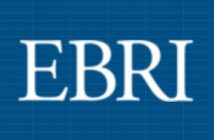Over 57 million Americans classify themselves as freelance workers. While this type of work provides a lot of freedom, it can also be hard to tell other employers about what you have done in the past. When crafting a resume, you need to make sure that all parts of your work history are prominently featured. This is why including any freelance or part-time work experience is vital.
If you are looking for a way to completely revamp the look of your resume, then using one of the leading resume makers ResumeBuild, is a good idea. This website provides lots of unique resume templates. With these templates, all you have to do is enter in your work history and other pertinent information. If you are trying to include your freelance and part-time work history on your resume the right way, consider these great tips.
How to include freelance work into your resume
Put All of This Work Experience in One Section
Did you work as a freelancer for a number of consecutive months or years? If so, you need to let a potential employer know about this period and what you accomplished. Instead of trying to spread out your freelance or part-time work history all over your resume, put it all in one spot. The more entries you have in your work history, the harder it will be to keep it scannable and appealing.
Grouping all of your freelance and part-time work into categories is a great idea. In most cases, you will only want to mention the freelance or part-time work you have done in the past if it is relevant to the current job you are applying for. Hiring managers won’t really care about work that isn’t related to their industry. This is why leaving it out of your resume is such a good idea.
Your Online Social Media Profiles Should Back Up Your Claims
One of the main things you need to do to have success as a freelancer is to develop an online presence. Since you are applying for jobs online, it is only natural that business owners will want to look at your social media profiles.
Generally, business owners and hiring managers will limit their social media research to professional platforms like LinkedIn. Having a good profile on this social media platform that details all of your previous freelance work is beneficial for a couple of reasons.
The first benefit of listing this work on your LinkedIn profile is the increased visibility it provides. Another benefit of listing your freelance experience on LinkedIn is because it can help to verify the claims on your resume. The connections you create on LinkedIn can help you further your career and reach your goals in no time. This is why creating a profile on this site and engaging with other like-minded professionals is such a good idea.
As a freelancer, you need a powerful social media presence
Put Links to Your Online Profile Website
Listing details about your freelance or part-time work history is a must, but you need to work on providing more proof to a hiring manager. When you go in for an interview with a potential employer, they will ask questions about your freelance experience. If you have a website that acts as your online portfolio, putting this web address in your resume is crucial. If a hiring manager or business owner can actually see what you have done for other companies, they are far more likely to hire you.
Work on Perfecting Your Resume
Each time you apply for a new job, you need to customize your resume to fit the needs of the potential employer. This type of customization will allow you to catch the attention of a hiring manager.






